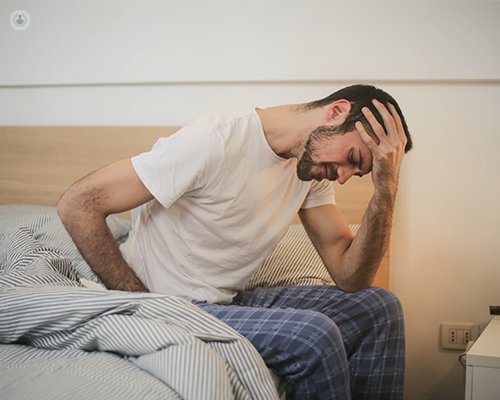Monkeypox: should we be concerned?
Escrito por:Monkeypox is fast becoming the new potentially fearful medical condition to grip our attention, as it begins to spread across Europe, with cases in the UK currently being reported. In this article, we ask esteemed London-based consultant dermatologist, Dr Emilia Duarte Williamson, whether Monkeypox is really something we should be concerned about, how people contract the virus, and what the main symptoms are.

Monkeypox: is it really something to worry about?
It may sound alarming after what we have all been through with COVID-19, that we are hearing about cases of the Monkeypox virus in the United Kingdom, other countries in Europe, the U.S.A, Singapore and Australia. However, there are very few cases.
How do people get the virus?
To contract the virus, people need to be in close contact with people who have the virus. The disease is much less severe than the smallpox virus which was eradicated in 1980 after widespread vaccination. It is reassuring that the smallpox vaccine will be effective in preventing Monkeypox, as they are similar viruses.
People become infected through contact with the skin lesions or body fluids of humans or infected animals (rats, mice, and squirrels). It can be caught through respiratory droplets (coughs, sneezes) or through materials or clothes contaminated with the virus. It may be possible to catch Monkeypox by eating meat from an infected animal that is not very well cooked, or by touching their products such as skin or fur.
When was the first case of Monkeypox reported in humans?
The Monkeypox virus was discovered in 1958 during an outbreak in monkeys that were kept in laboratory conditions for research. The first case in humans was reported in 1970.
In what countries has it been reported?
There have been many cases reported in central and west Africa, particularly in the Republic of Congo and Nigeria. In the UK, there have been reports of 106 cases in the last few weeks, and 118 cases have been reported across Europe. The risk remains low.
Who are being affected most?
Most cases that have been reported are gay men who have been infected after having sexual intercourse with other men.
What are the main symptoms of Monkeypox?
Symptoms include fever, headache, muscle ache, as well as swollen lymph nodes followed by a rash. Lesions develop at the same time and go through different stages before falling off, (flat lesions or macules, raised papules, vesicles, pustules and scabs). The incubation times range from five to 21 days.
How long will it take before someone recovers from Monkeypox?
The illness lasts between two to four weeks, and most patients will have a mild form of the disease. However, the prognosis will depend on previous health issues or comorbidities, such as HIV, cancer, immunosuppressant therapies, and/or solid organ transplants. It can be more severe in children who are younger than eight years old, as well as pregnant or breast-feeding women.
Schedule an appointment with Dr Emilia Duarte Williamson today by visiting her Top Doctors profile if you are worried that you may have contracted Monkeypox.


